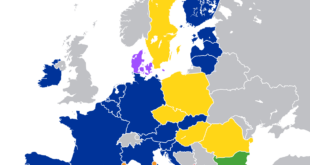- On the eternally rough road of India-Pakistan ties, any offer of talks, like the one made by Pakistan Prime Minister Shehbaz Sharif last week, is cause for equal measure of excitement and cynicism.
- His words, in an interview to a UAE channel, that Pakistan “had learnt a lesson from three wars” with India and wants to “live in peace with India provided we are able to resolve our genuine problems” including “burning points like Kashmir” were seen in New Delhi more as him clutching at straws, at a time when his country is in turmoil.
- Politically, Mr. Sharif has to face elections later this year, and continues to be challenged by the opposition led by former leader Imran Khan.
- Economically, Pakistan is in imminent danger of a debt default, and is being held together by assurances of support from the UAE, Saudi Arabia and China, as well as hopes that its IMF bailout package will come through with the adoption of more austerity measures.
- Pakistan also faces a growing terror threat from its Afghan border, where despite having a friendly regime in control, there are clashes particularly with Tehreek-e-Taliban Pakistan fighters.
- Even so, Mr. Sharif’s peaceable words, coming a month after a crossing of swords at the UN, indicate that there is an understanding that India is not responsible for Pakistan’s current state of affairs, and an engagement of some sort would benefit the government there.
- The Ministry of External Affairs response, that India wants “normal neighbourly relations with Pakistan” provided there is a conducive atmosphere devoid of “terrorism, hostility or violence” suggests that Delhi continues to hold its position, but does not wish to snub Mr. Sharif’s offer either.
- There is more to the timing of Mr. Sharif’s words; as India prepares to host the SCO summit this summer, invitations are going out to ensure participation by Pakistan for the major meetings, and a more cordial relationship will ensure a smoother ride.
- India’s G-20 presidency, and its desire to promote the concerns of the Global South amidst the Ukraine war, would also benefit from peace in the neighbourhood.
- It remains to be seen whether Mr. Sharif’s words were only made for effect, or with a genuine desire to push for talks.
- If they are indeed followed up by Islamabad, either through the acceptance of the SCO invite, or with a proposal to restore mission strengths in both capitals that have not had Ambassadors since 2019, it is hoped New Delhi would reciprocate.
- At a time when the government is advising Russia and Ukraine for “dialogue and diplomacy” and is seeking to engage the Taliban out of “pragmatism”, it would seem contradictory to refuse such a chance for enhancing regional stability, especially during a year when India’s role as a statesman is being highlighted.
SOURCE: THE HINDU, THE ECONOMIC TIMES, PIB
 Chinmaya IAS Academy – Current Affairs Chinmaya IAS Academy – Current Affairs
Chinmaya IAS Academy – Current Affairs Chinmaya IAS Academy – Current Affairs



